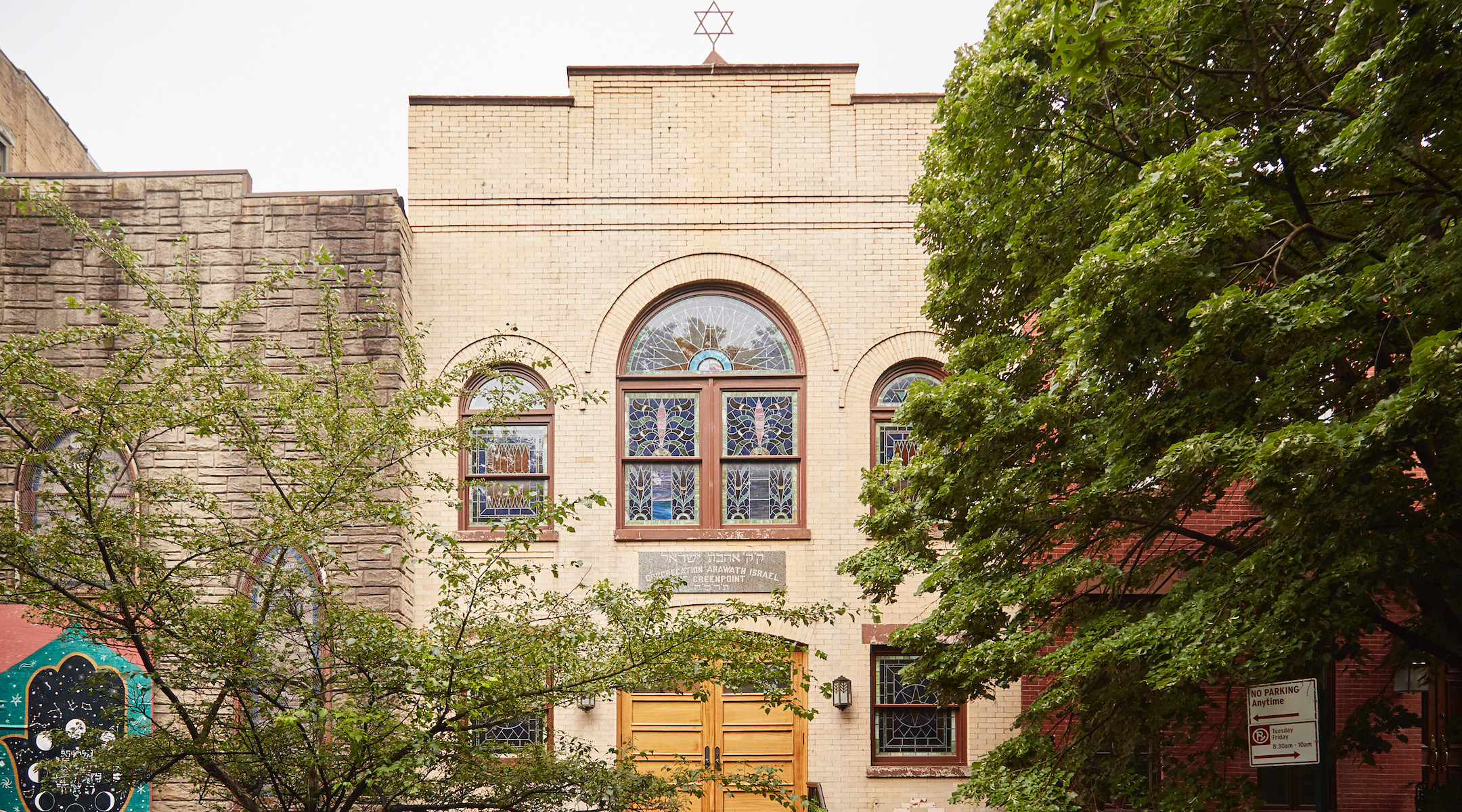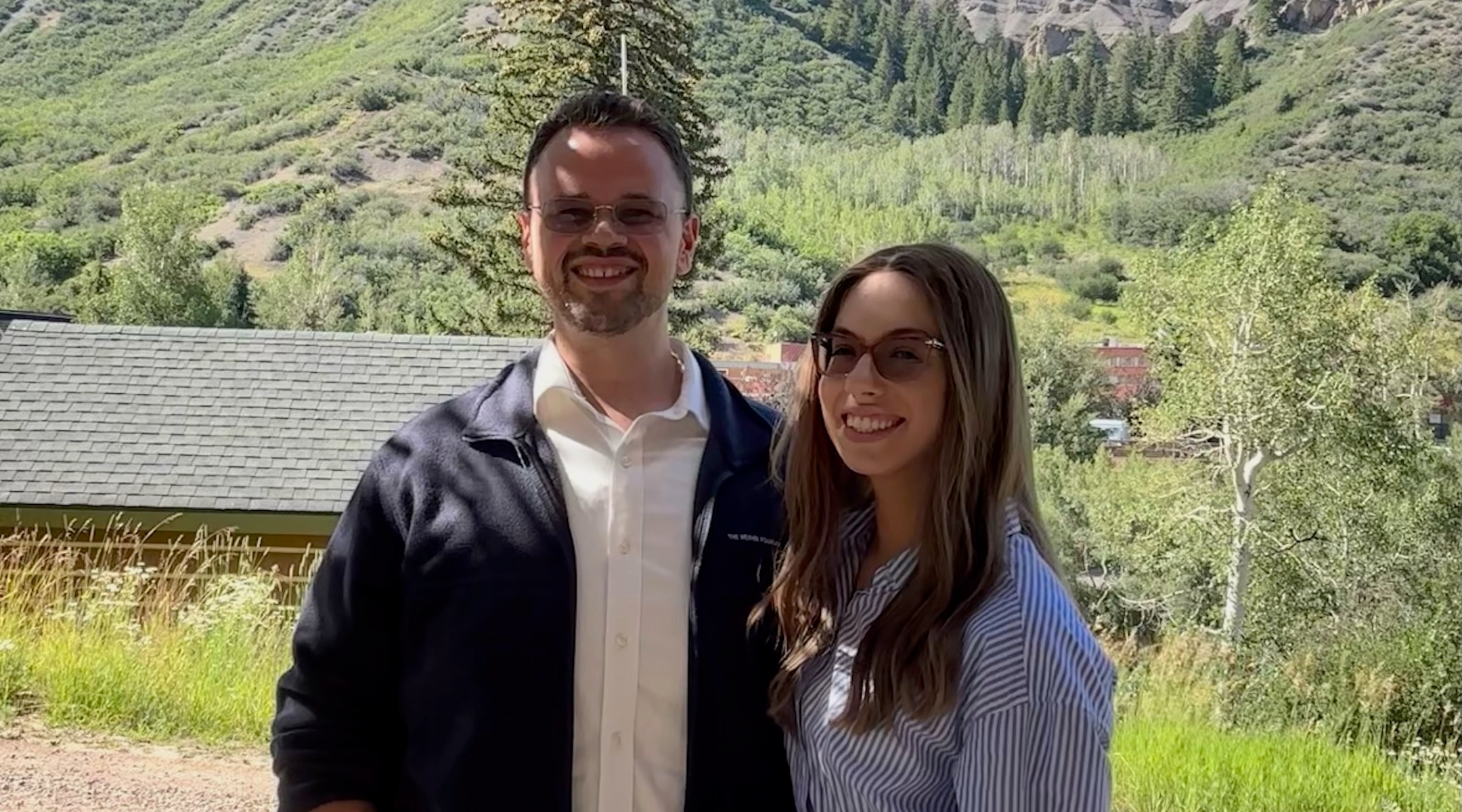As a rabbi, Isaiah Rothstein has worn many hats: He was the founder of several millennial grassroots Jewish movements; worked at Jewish camps, youth groups and day schools; has served as a scholar-in-residence at Jewish organizations across the country and is currently the Public Affairs Advisor at the Jewish Federations of North America.
But until now, there’s one rabbinic role Rothstein hasn’t taken on: leading a congregation.
In July, Rothstein, 35, was appointed the senior rabbi at the Greenpoint Shul, where he will lead Shabbat services for the first time on Friday, Aug. 9. The Orthodox congregation — which claims to be the oldest synagogue in Brooklyn — had been looking to fill the role for the last 18 months after its previous rabbi, Ben Greenfield, announced in 2022 he’d be moving back to his home state of California.
“It is my first formal congregation,” and one he’s looking forward to immensely, Rothstein told the New York Jewish Week. “I’m excited to really think through the zip code as a whole, with one of my values being that, when it comes to creating a sense of belonging within the Greenpoint Shul, it’s not just about who comes into the walls of the institution. It’s also thinking about the needs of the entire neighborhood.”
It’s also an opportunity to put into practice ideas of diversity Rothstein has been promoting throughout his career — when he focused on making Judaism more accessible, inclusive and positive for Jews of color and non-religious Jews. Rothstein, whose mother is Black and converted to Judaism, and whose father was secular before becoming more Orthodox through Chabad, founded JFNA’s Initiative for Jewish Equity, Diversity, and Inclusion.
“In general, there are so many strengths that the synagogue has to offer — for people who feel affiliated with synagogues, to people who feel unaffiliated and people who have been disaffiliated or misaffiliated — people who have walked in to synagogue spaces and have left feeling worse,” said Rothstein, who added that he resists Judaism’s denominational labels. “Especially today, where many people don’t feel like they have a home, and feel isolated and lonely and behind screens, like there isn’t a third space and like everything is polarizing, I hope that we can create a space where there’s many different access points for people of Jewish and non-Jewish backgrounds to feel connected to our community.”

The Greenpoint Shul was founded in 1886 and moved into its location at 108 Noble St. in 1904. (Courtesy Daphne Lasky)
Greenpoint Shul serves three large demographics: young, creative professionals; young families and old-timers, said Daphne Lasky, the synagogue’s president. As a congregation made up of 75 member units, the smallish synagogue is a religious home for everyone from “hipsters to Hasids,” she added, and is diverse in everything from age to denomination.
The synagogue also serves as a community beacon throughout Greenpoint, offering its space for Alcoholics Anonymous and Narcotics Anonymous meetings, cultivating a backyard vegetable garden, working with a local soup kitchen with the nearby Greenpoint Reformed Church and collaborating with local artists for events.
“Since 1962 we’ve been the only shul in the neighborhood. Since then, we’ve always taken seriously the need not just to be who we are and worry about our own condition, but also to serve the whole neighborhood,” Lasky said.
She recalled that Rabbi Jacob Zipper, a renowned cantor who was the rabbi from 1949 until 2007, was well-known in the neighborhood for maintaining good relationships among the diverse Jewish and non-Jewish groups in the neighborhood. For years, Greenpoint, which borders on heavily Jewish Williamsburg, was considered largely working class, with a white ethnic (famously Polish) majority and smaller groups that identified as Black, Latino and Asian.
“He set that tone for us, and that’s something that we’ve really tried to keep alive ever since,” Lasky said of Zipper. “When we look for a rabbi, we look for someone who could continue in that tradition and share those values, and Rabbi Rothstein is certainly the person for that and for this moment.”
Rothstein is asking several questions as he steps into his new role: “How do we make sure we’re good neighbors? How do we make sure that we are confidants for other communities in need? How do we think about interfaith coalition building? How do we think about broader intergroup coalition building? How do we think about people on the margins, not only of Jewish life, but of society?”
With a full-time job already, Rothstein wasn’t planning to be a congregational rabbi when he was approached by the search committee in the spring.
Still, he was convinced to apply for the role and eventually embark on a trial Shabbat. Greenpoint Shul, it seemed, was exactly what he didn’t know he was looking for.
“It was a great weekend. It was a really special, down to earth community with a wide range of views on a lot of issues, religious diversity, faith diversity, racial diversity. I already feel like I get uncomfortable in homogenous settings and this shul was the opposite of that,” Rothstein said. “There was a Satmar person there on Shabbat morning, there was a Chabadnik, there was somebody who was learning Talmud and there were people who came in jeans and a T-shirt. I thought to myself, ‘This is my kind of place.’”
As for the congregants, who have been organizing lay-led services since Greenfield departed, the first question at the Q and A session during Rothstein’s trial Shabbat, according to Lasky, was, “When can you start?”
“If services were at 7 p.m., by 10 o’clock, there was popular demand,” to hire Rothstein, she said. “People have rolled up their sleeves in incredible ways and taken on new skills and shown incredible commitment to the congregation. At the same time, people are really excited to have a spiritual leader and someone who can bring us all together and create some of that shape that any community needs.”
Rothstein will continue his role as JFNA, and is eager to see how his work there translates to a local setting. “Being at JFNA, in both my role and as a national organization, we’re way up here,” in terms of broad, big-picture consulting and advising of Jewish organizations, he said. “I have often felt like, wow, how great it would be to be in a local setting, on the streets, and with the people. It feels really exciting.”

Rothstein and his wife, Leah Gottfried, moved to Greenpoint this summer. (Courtesy Isaiah Rothstein)
Being on the streets with people has already happened a bit more literally than Rothstein expected. He moved to the neighborhood from Harlem in mid-July, and he’s already been stopped by passersby multiple times.
One guy drove past Rothstein and Gottfried on a motorcycle before doubling back to say congratulations, introduce himself and strike up a conversation. Another woman, who was volunteering outside a grocery store, stopped him to say “happy” Shabbos.
“We said ‘Happy Shabbos’ back, and then 15-20 seconds later, she yelled, ‘I mean, good Shabbos! My grandparents would be so disappointed,’” he recalled with a laugh.
“There’s this energy I felt when I was walking through the streets of Brooklyn — diverse, open, eclectic,” he said. “Just being able to see this big, beautiful skyline of Manhattan, makes me realize that we’re at the center of so much. We’re in a very physical concrete jungle, so to have such a spiritual, emotional, healing kind of role, feels like it would be in contrast, but it’s so integrated.”
The New York Jewish Week brings you the stories behind the headlines, keeping you connected to Jewish life in New York. Help sustain the reporting you trust by donating today.





